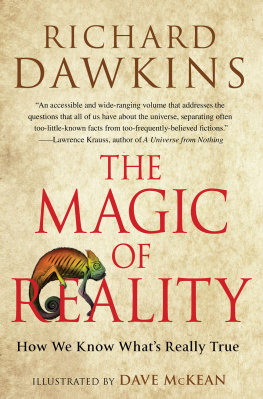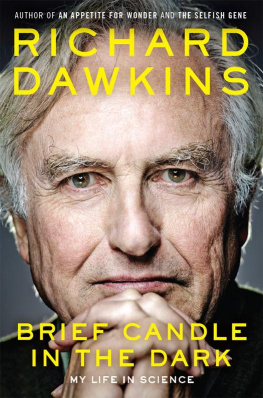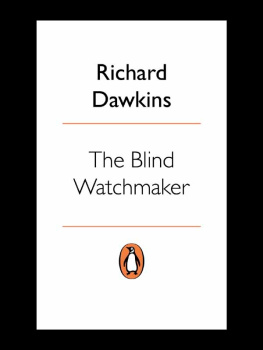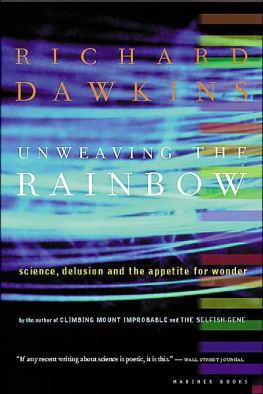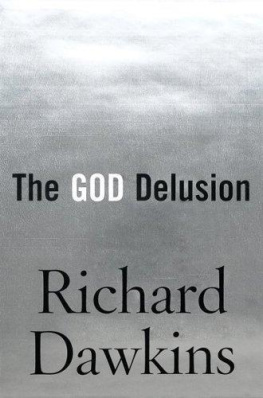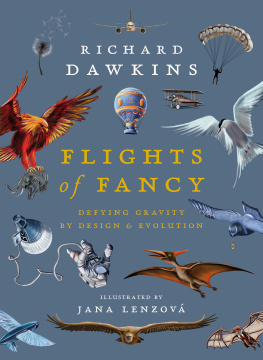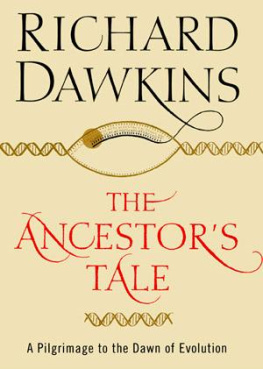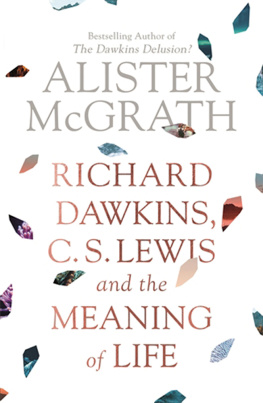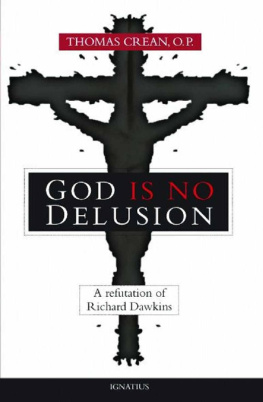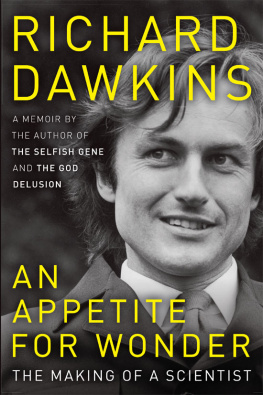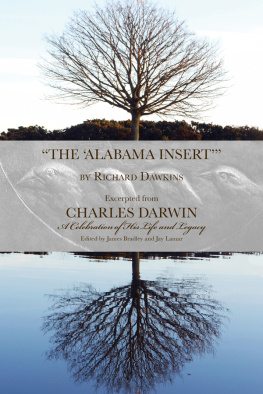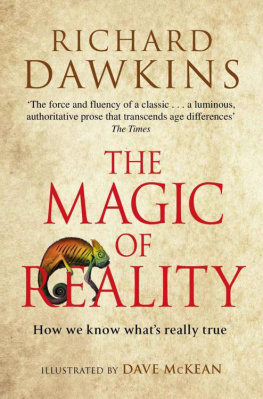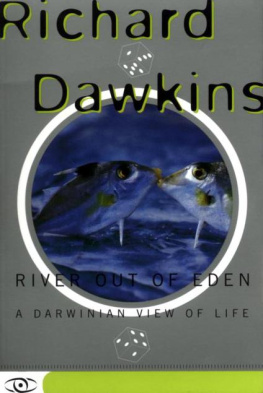Richard Dawkins - The Magic of Reality
Here you can read online Richard Dawkins - The Magic of Reality full text of the book (entire story) in english for free. Download pdf and epub, get meaning, cover and reviews about this ebook. publisher: Free Press, genre: Romance novel. Description of the work, (preface) as well as reviews are available. Best literature library LitArk.com created for fans of good reading and offers a wide selection of genres:
Romance novel
Science fiction
Adventure
Detective
Science
History
Home and family
Prose
Art
Politics
Computer
Non-fiction
Religion
Business
Children
Humor
Choose a favorite category and find really read worthwhile books. Enjoy immersion in the world of imagination, feel the emotions of the characters or learn something new for yourself, make an fascinating discovery.
- Book:The Magic of Reality
- Author:
- Publisher:Free Press
- Genre:
- Rating:5 / 5
- Favourites:Add to favourites
- Your mark:
- 100
- 1
- 2
- 3
- 4
- 5
The Magic of Reality: summary, description and annotation
We offer to read an annotation, description, summary or preface (depends on what the author of the book "The Magic of Reality" wrote himself). If you haven't found the necessary information about the book — write in the comments, we will try to find it.
The Magic of Reality — read online for free the complete book (whole text) full work
Below is the text of the book, divided by pages. System saving the place of the last page read, allows you to conveniently read the book "The Magic of Reality" online for free, without having to search again every time where you left off. Put a bookmark, and you can go to the page where you finished reading at any time.
Font size:
Interval:
Bookmark:
Praise for The Magic of Reality
Its the clearest and most beautifully written introduction to science Ive ever read. Again and again I found myself saying Oh! So thats how genes work! (or stars, or tectonic plates, or all the other things he explains). Explanations I thought I knew were clarified; things I never understood were made clear for the first time.
Philip Pullman, author of the His Dark Materials trilogy
A charming and free-ranging history of science.
The Sunday Times
Stunning in appearance... the book is a triumph.
New Scientist
This book may be exactly whats needed to increase science literacy for readers of all ages.
Publishers Weekly
The text is persuasive whatever ones age... the chapter on rainbows has the clearest explanation of how they appear that Ive ever seen.
Financial Times
Dawkins uses a simple, brilliant technique highly appealing to young and old.
The Washington Post
The Magic of Reality provides a beautiful, accessible and wide-ranging volume that addresses the questions that all of us have about the universe... written with the masterful and eloquently literate style of perhaps the best popular expositor of science, Richard Dawkins, and delightfully illustrated by Dave McKean. What more could anyone ask for?
Lawrence Krauss, author of Quantum Man and A Universe from Nothing
Also by Richard Dawkins
The Selfish Gene
The Extended Phenotype
The Blind Watchmaker
River Out of Eden
Climbing Mount Improbable
Unweaving the Rainbow
A Devils Chaplain
The Ancestors Tale
The God Delusion
The Greatest Show on Earth
Thank you for purchasing this Free Press eBook.
Sign up for our newsletter and receive special offers, access to bonus content, and info on the latest new releases and other great eBooks from Free Press and Simon & Schuster.
C LICK H ERE T O S IGN U P
or visit us online to sign up at
eBookNews.SimonandSchuster.com

Clinton John Dawkins
19152010
O, my beloved father
W HAT IS MAGIC ?

R EALITY IS EVERYTHING that exists. That sounds straightforward, doesnt it? Actually, it isnt. There are various problems. What about dinosaurs, which once existed but exist no longer? What about stars, which are so far away that, by the time their light reaches us and we can see them, they may have fizzled out?
Well come to dinosaurs and stars in a moment. But in any case, how do we know things exist, even in the present? Well, our five senses sight, smell, touch, hearing and taste do a pretty good job of convincing us that many things are real: rocks and camels, newly mown grass and freshly ground coffee, sandpaper and velvet, waterfalls and doorbells, sugar and salt. But are we only going to call something real if we can detect it directly with one of our five senses?
What about a distant galaxy, too far away to be seen with the naked eye? What about a bacterium, too small to be seen without a powerful microscope? Must we say that these do not exist because we cant see them? No. Obviously we can enhance our senses through the use of special instruments: telescopes for the galaxy, microscopes for bacteria. Because we understand telescopes and microscopes, and how they work, we can use them to extend the reach of our senses in this case, the sense of sight and what they enable us to see convinces us that galaxies and bacteria exist.
How about radio waves? Do they exist? Our eyes cant detect them, nor can our ears, but again special instruments television sets, for example convert them into signals that we can see and hear. So, although we cant see or hear radio waves, we know they are a part of reality. As with telescopes and microscopes, we understand how radios and televisions work. So they help our senses to build a picture of what exists: the real world reality. Radio telescopes (and X-ray telescopes) show us stars and galaxies through what seem like different eyes: another way to expand our view of reality.
Back to those dinosaurs. How do we know that they once roamed the Earth? We have never seen them or heard them or had to run away from them. Alas, we dont have a time machine to show them to us directly. But here we have a different kind of aid to our senses: we have fossils, and we can see them with the naked eye. Fossils dont run and jump but, because we understand how fossils are formed, they can tell us something of what happened millions of years ago. We understand how water, with minerals dissolved in it, seeps into corpses buried in layers of mud and rock. We understand how the minerals crystallize out of the water and replace the materials of the corpse, atom by atom, leaving some trace of the original animals form imprinted on the stone. So, although we cant see dinosaurs directly with our senses, we can work out that they must have existed, using indirect evidence that still ultimately reaches us through our senses: we see and touch the stony traces of ancient life.
In a different sense, a telescope can work like a kind of time machine. What we see when we look at anything is actually light, and light takes time to travel. Even when you look at a friends face you are seeing them in the past, because the light from their face takes a tiny fraction of a second to travel to your eye. Sound travels much more slowly, which is why you see a firework burst in the sky noticeably earlier than you hear the bang. When you watch a man chopping down a tree in the distance, there is an odd delay in the sound of his axe hitting the tree.
Light travels so fast that we normally assume anything we see happens at the instant we see it. But stars are another matter. Even the sun is eight light-minutes away. If the sun blew up, this catastrophic event wouldnt become a part of our reality until eight minutes later. And that would be the end of us! As for the next nearest star, Proxima Centauri, if you look at it in 2012, what you are seeing is happening in 2008. Galaxies are huge collections of stars. We are in one galaxy called the Milky Way. When you look at the Milky Ways next-door neighbour, the Andromeda galaxy, your telescope is a time machine taking you back two and a half million years. Theres a cluster of five galaxies called Stephans Quintet, which we see through the Hubble telescope spectacularly colliding with each other. But we see them colliding 280 million years ago. If there are aliens in one of those colliding galaxies with a telescope powerful enough to see us, what they are seeing on Earth, at this very moment, here and now, is the early ancestors of the dinosaurs.
Are there really aliens in outer space? Weve never seen or heard them. Are they a part of reality? Nobody knows; but we do know what kind of things could one day tell us if they are. If ever we got near to an alien, our sense organs could tell us about it. Perhaps somebody will one day invent a telescope powerful enough to detect life on other planets from here. Or perhaps our radio telescopes will pick up messages that could only have come from an alien intelligence. For reality doesnt just consist of the things we already know about: it also includes things that exist but that we dont know about yet and wont know about until some future time, perhaps when we have built better instruments to assist our five senses.
Atoms have always existed, but it was only rather recently that we became sure of their existence, and it is likely that our descendants will know about many more things that, for now, we do not. That is the wonder and the joy of science: it goes on and on uncovering new things. This doesnt mean we should believe just anything that anybody might dream up: there are a million things we can imagine but which are highly unlikely to be real fairies and hobgoblins, leprechauns and hippogriffs. We should always be open-minded, but the only good reason to believe that something exists is if there is real evidence that it does.
Font size:
Interval:
Bookmark:
Similar books «The Magic of Reality»
Look at similar books to The Magic of Reality. We have selected literature similar in name and meaning in the hope of providing readers with more options to find new, interesting, not yet read works.
Discussion, reviews of the book The Magic of Reality and just readers' own opinions. Leave your comments, write what you think about the work, its meaning or the main characters. Specify what exactly you liked and what you didn't like, and why you think so.

